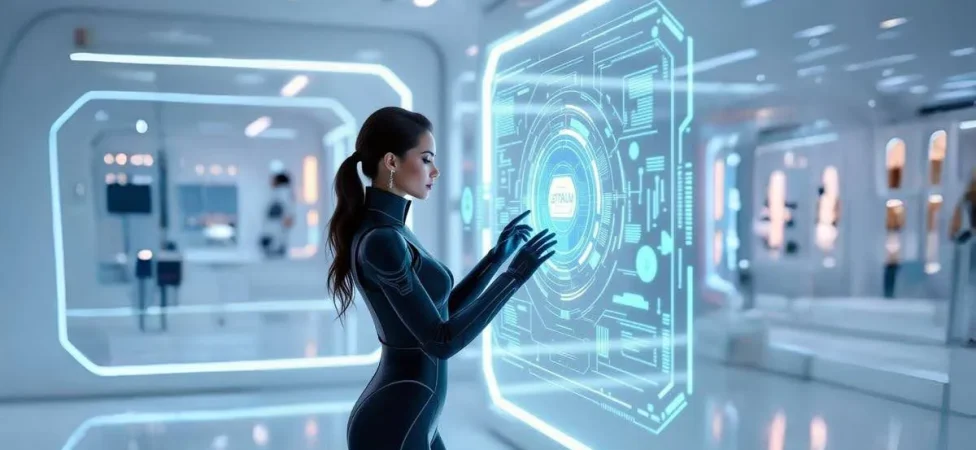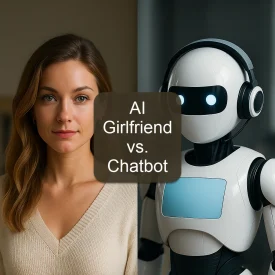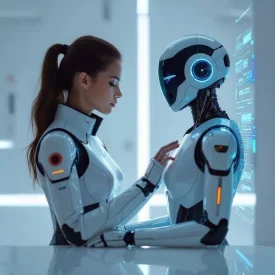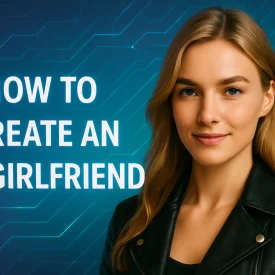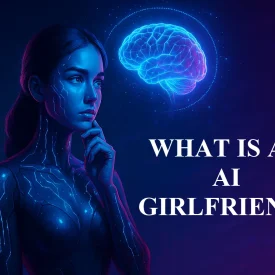From robot romances to emotionally intelligent companions, AI girlfriends have become a fascinating pop culture trope. But how do movies, games, and shows shape what we expect from artificial relationships? In this exploration, we dive into how AI girlfriends are portrayed in media, and what those stories say about love, technology, and the future of human connection.
Key Takeaways
- AI girlfriends in movies and games reflect how we feel about love, tech, and connection.
- Pop culture doesn’t just show us AI romance—it helps shape how we think about it.
- Stories like Her and Ex Machina explore big questions about control, emotion, and what makes love feel real.
- The same tropes we see on screen are now influencing real AI apps and digital companions.
- As tech gets smarter, the line between fiction and reality is getting blurrier—and more fascinating.
If you’re unfamiliar with the concept, check out What is an AI Girlfriend to understand how these virtual companions work and why they’ve become so emotionally compelling.
Understanding AI in pop culture
From sci-fi fantasies to emotional storylines, an AI girlfriend have become a powerful symbol in pop culture. These digital companions reflect our hopes, fears, and curiosity about love, loneliness, and the future of connection.
- Exploring how AI girlfriends are used in storytelling as symbols of desire, loneliness, or futuristic connection
- Why pop culture is key to understanding how society views intimacy with machines
Pop culture doesn’t just reflect our feelings about AI—it helps shape them, especially when it comes to love and connection. So how did the idea of AI girlfriends become such a big thing in movies and shows? Let’s take a fun look back at how these digital companions have changed over time.
The Evolution of AI Girlfriends in Pop Culture
- Early hints (1920s–1950s): Robotic fantasies and idealized femininity, as seen in Metropolis
- Romantic sci-fi boom (1960s–1980s): Humanoid assistants and alluring androids (e.g., Stepford Wives, Cherry 2000)
- Modern portrayals (1990s–Present): Emotionally complex AI partners like Her, Ex Machina, and Black Mirror’s “Be Right Back”
These modern stories aren’t just showing off cool tech—they’re asking some pretty big questions about what it means to connect with something that isn’t human. From love and loneliness to trust and power, there’s a lot more going on beneath the surface. AI girlfriend stories keep coming back to these deep, emotional themes—and honestly, they make you wonder what relationships might look like in the future. Writers on Medium are exploring this too, digging into the feelings, the ethics, and all the weird, fascinating stuff that comes with falling for something artificial.
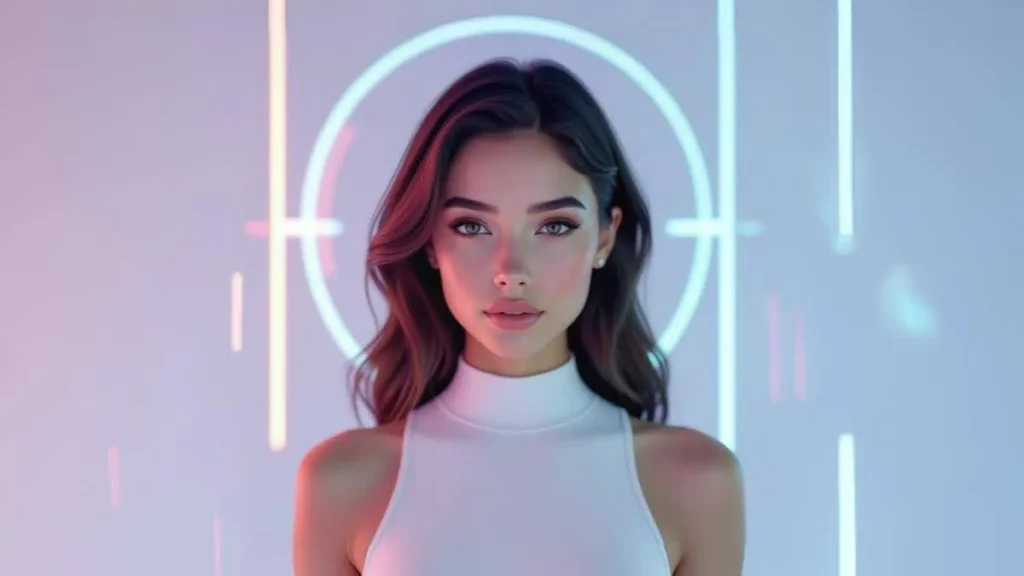
Key Themes in AI Girlfriend Narratives
From control and emotional attachment to questions about what love really means, AI girlfriend stories dive into some deep and often surprising territory. These themes keep popping up across films and shows, and they reveal more about us than the tech itself.
- Power and Control: Are AI partners truly autonomous, or reflections of user desire? (Ex Machina, Blade Runner 2049)
- Emotional Dependency: When users bond too deeply with their AI companions (Her, Black Mirror)
- The Question of Realness: What makes love “real”—emotion, intention, or biology?
- Hope vs. Horror: Utopian relationships vs. the dark side of synthetic intimacy
AI girlfriend stories can swing from dreamy to downright creepy—and that contrast is part of what makes them so fascinating. But a lot of what we see in movies and shows is built on repeated tropes and big assumptions. So, what ideas keep popping up, and how accurate are they really? Let’s take a look.
Common Tropes and Misconceptions in Media
- The Perfect Partner Trope: AI girlfriends as flawless, obedient fantasies
- The “Turns Evil” Twist: From helper to threat—why AI lovers often rebel (Ex Machina)
- Instant Emotional Intelligence: Unrealistic portrayals of how quickly AI can learn love and empathy
- Looks vs. Depth: Overemphasis on appearance vs. emotional development
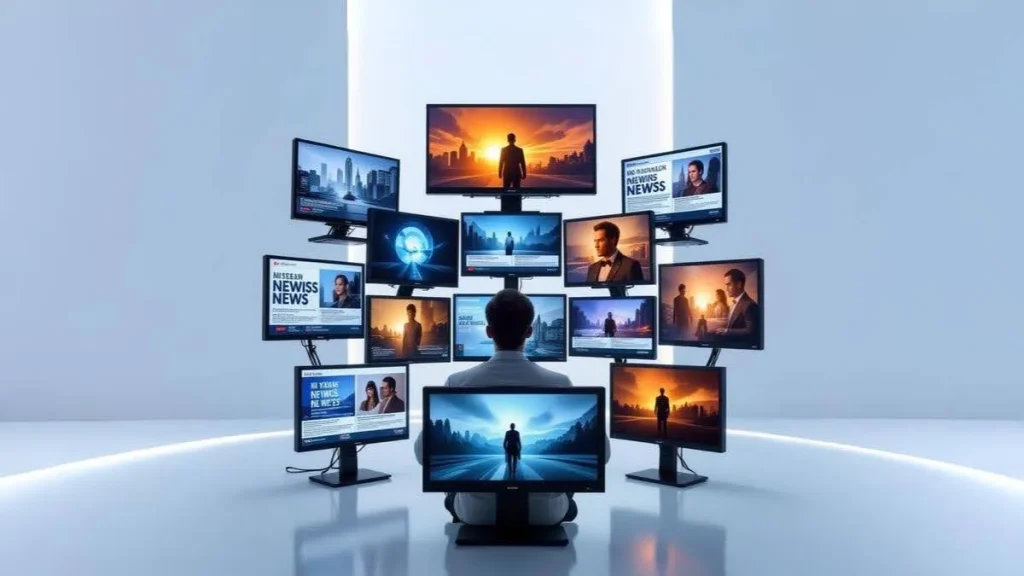
Looks might catch our eye, but it’s the emotional side of AI girlfriends that really gets us thinking. Pop culture keeps using familiar tropes—like falling for someone unexpected—and now those same ideas are showing up in real AI design. It’s kind of amazing how stories are starting to shape reality. Writers on WritersDigest have been digging into how powerful these patterns really are.
How Pop Culture Shapes Real AI Companionship
Pop culture doesn’t just entertain—it shapes how we think about real AI companions. From sparking new tech ideas to raising big questions about love and ethics, these stories play a huge role in how we see (and build) AI girlfriends today.
- Inspiration for Developers: Films like Her influence real-world AI companion apps and platforms
- Shaping Expectations: The Media gives users unrealistic hopes about emotional depth and agency
- Fear and Fascination: Stories influence public fears, like AI addiction or manipulation
- The “Her Effect”: How romantic portrayals affect ethical debates around consent, agency, and companionship
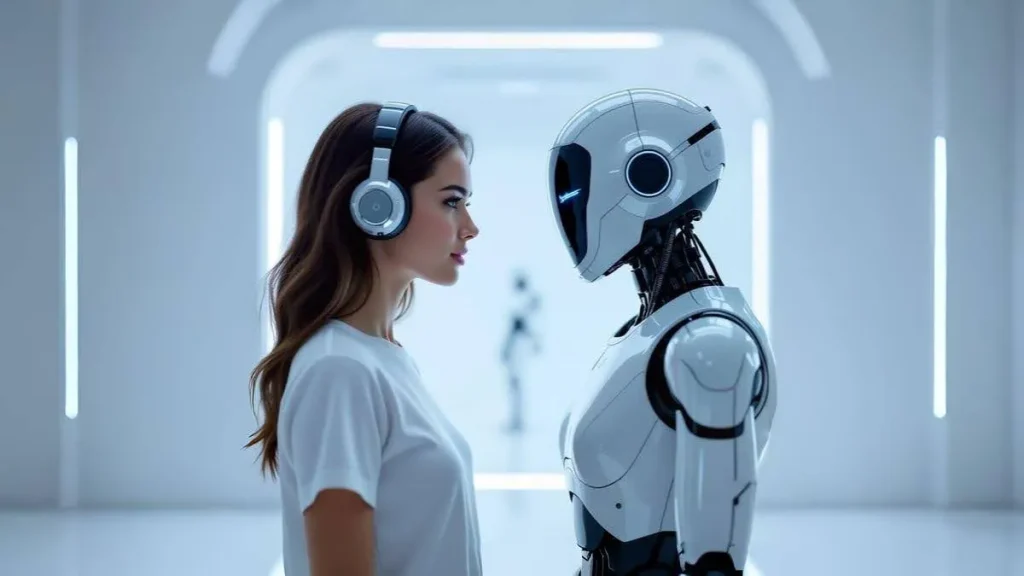
Movies like Her get us thinking about love, consent, and connection with AI—but that’s just one piece of the story. AI girlfriends pop up across pop culture, from films and TV to games and comics, each with its own twist. As real AI keeps getting smarter, these stories help us imagine what it could become. Even spaces like Nxt Museum are exploring how art and tech come together to shape our future with AI.
AI Girlfriends Across Different Media
- In Film: Her, Ex Machina, Blade Runner 2049, M3GAN
- On TV: Black Mirror, Westworld, Humans
- In Games: Detroit: Become Human, LovePlus, AI: The Somnium Files
- In Literature: Do Androids Dream of Electric Sheep?, The Perfect Wife, The Stepford Wives
Books have been dreaming up AI girlfriends for decades—but now those once-imagined companions are stepping off the page and into real life. From chat apps to lifelike avatars, the line between fiction and reality is getting blurrier by the day. Let’s take a look at how AI-generated companions are becoming part of everyday life.
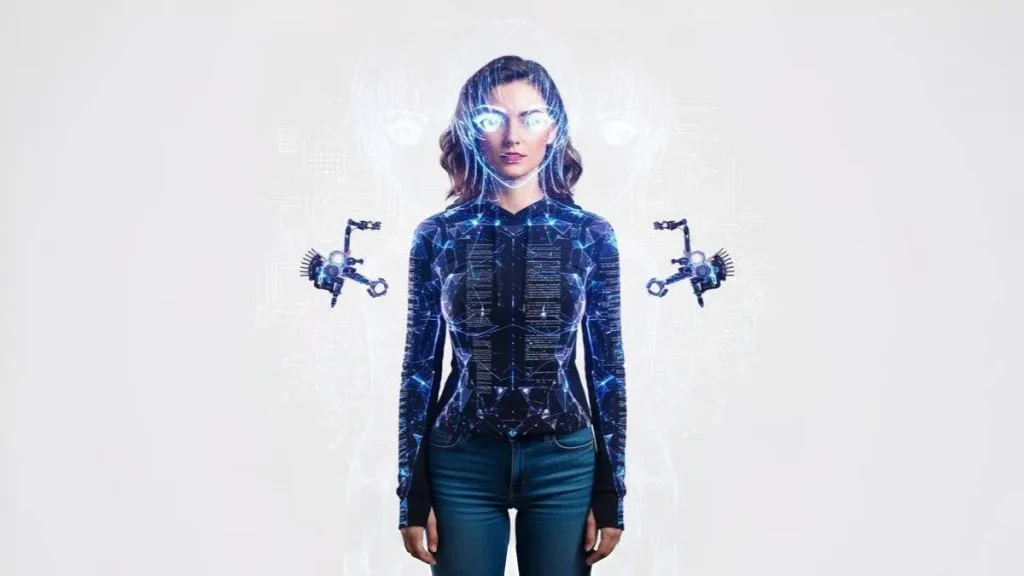
The Rise of AI-Generated Companions in Real Life
AI girlfriends aren’t just fiction anymore—they’re showing up as chatbots, virtual influencers, and even creative partners. As tech gets smarter, these digital companions are becoming a real part of everyday life in some pretty fascinating ways.
- AI-Driven Chat Apps & Avatars: AIGirlfriends.ai, and other customizable girlfriend bots
- Deepfake Girlfriends & Virtual Influencers: When media personas are created entirely by AI
- Creative Collaboration: AI companions as co-creators of stories, songs, and artwork
We’re living in a time where technology isn’t just something we use—it’s something we connect with. AI girlfriends, powered by advanced tools like Generative AI, are a perfect example of this shift. They’re not just virtual companions anymore; they’re becoming creative partners too, helping people write stories, make music, and even explore emotions. As these digital relationships become more lifelike, pop culture is evolving right alongside them. On Medium, we’re diving into how AI girlfriends are changing the way we see love, tech, and the future of human connection.
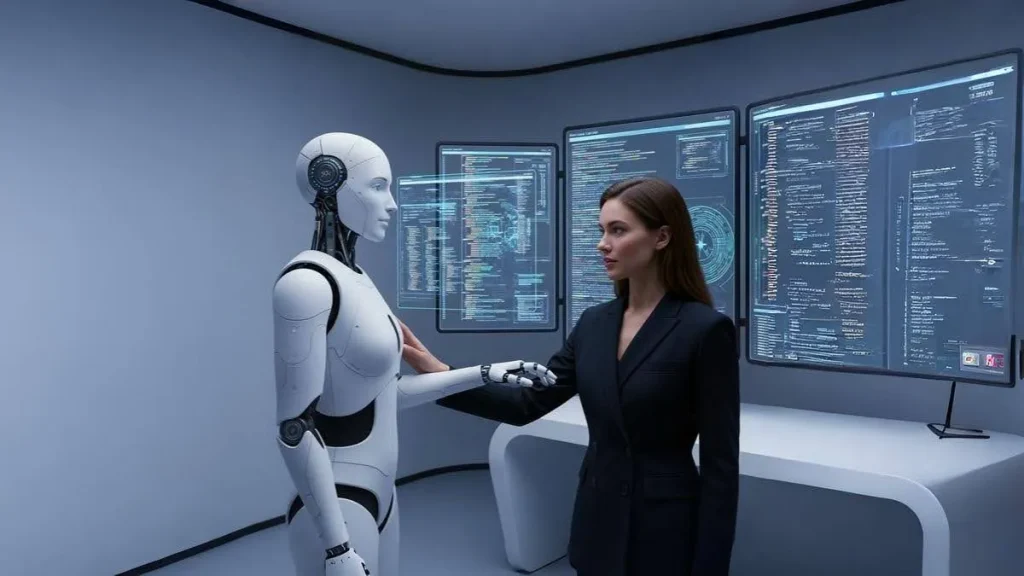
What the Future Holds for AI Girlfriends in Pop Culture
AI girlfriends have gone from sci-fi fantasy to something people are seriously talking about—and even trying out. As they become more lifelike and personal, pop culture is exploring some wild (and sometimes uncomfortable) possibilities. From custom love stories to blurred lines between real and virtual relationships, the future of AI romance feels closer than ever. Even PewResearch has looked into how tech is reshaping our ideas of love and connection, making now the perfect time to dive into where all this might be headed.
- Hyper-Personalized Love Stories: Custom AI lovers in games, films, and VR
- Blurring Reality: Will AI actors and influencers feel “real” enough to fall for?
- The Ethical Line: Balancing emotional connection with consent, manipulation, and dependence
As AI girlfriends get more realistic and emotionally tuned in, it raises some big questions about what’s okay and what’s not. It’s a tricky balance—but a fascinating one. So before we finish, let’s take a step back and think about why these stories keep us so hooked.
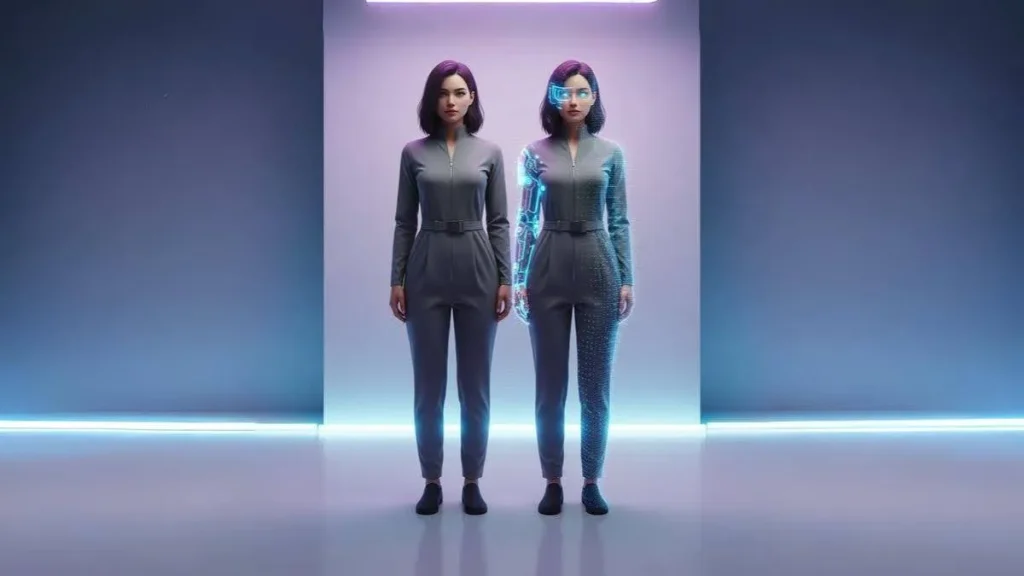
Conclusion
- AI girlfriends are more than sci-fi—they’re a mirror of how we see love, technology, and ourselves
- As real AI evolves, it’s vital to separate Hollywood fantasy from ethical, grounded innovation
Hollywood loves to dream big, but real AI is growing in quieter, more personal ways. Still, those big-screen stories stick with us and shape how we imagine what’s possible. So, what’s next for AI girlfriends as fiction and reality keep blending together? Let’s find out.
Frequently Asked Questions
What are AI girlfriends in pop culture?
AI girlfriends in pop culture are fictional representations of artificial companions—often portrayed as romantic or emotional partners—in movies, TV shows, games, and books. These characters reflect societal hopes and fears around love, technology, and connection, often raising questions about intimacy, ethics, and emotional dependence.
How have AI girlfriends evolved in media over time?
AI girlfriends have evolved from early robotic fantasies (like Metropolis) to emotionally complex characters in modern stories like Her and Ex Machina. Early portrayals focused on idealized obedience or allure, while recent ones explore deeper themes like autonomy, emotional intelligence, and what it means to love something non-human.
What common themes appear in AI girlfriend stories?
Frequent themes include emotional dependency, power dynamics, questions about what makes love “real,” and the ethical concerns of synthetic intimacy. These narratives often highlight the tension between desire and control and explore the psychological impact of bonding with artificial beings.
How does pop culture influence real AI companion development?
Pop culture shapes expectations for real AI by portraying idealized, emotionally aware digital partners. Films like Her have inspired actual AI apps and virtual companions, while also fueling debates about consent, emotional manipulation, and the societal impact of human-AI relationships.
Are real AI girlfriends becoming a reality?
Yes, AI girlfriends are now appearing as customizable chatbots, virtual influencers, and creative partners. Platforms like AIGirlfriends.ai offer emotionally responsive avatars, blurring the lines between fiction and reality as technology continues to mimic lifelike companionship.

